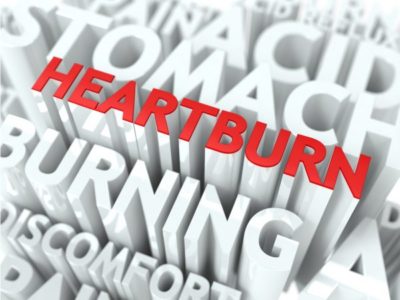Proton-Pump Inhibitors are not breath mints. They are serious drugs that work wonders if you have GERD or other esophageal problems. The Digestive Disease Consultants, Orlando started to call this article “PPI’s are not candy,” because many recent articles have asserted various risks associated with these drugs often prescribed for GERD. Millions of people now take them by prescription. However, they are also available in lesser strength over-the-counter forms.
https://www.sciencedaily.com/releases/2017/08/170830155511.htm
Before we explore this topic in detail, we want to establish two major points:
First: A “No Worry” Scenario:
We do not want you to worry about these medicines, if you are taking them under the supervisory care of your doctor or gastroenterologist. He or she knows your case. You are probably unaware of many factors concerning your general health, metabolism, other medications, gastric difficulties and other medicines. (That is unless you have recently acquired your M.D.)
Do not allow an article you stray across in your reading break your faith. Proton Pump Inhibitors continue to be highly effective therapy for GERD,
- Non-erosive reflux disease,
- Erosive esophagitis,
-

Proton Pump Inhibitors have effects on several systems in the body. How severe are the risks?
Dyspepsia,
- And peptic ulcer disease.
However, we hasten to add: be a proactive patient, and take the medicine only according to the instructions in your prescription. Of course if you have been on these medicines for a year, there is no harm in asking your doctor about your condition before your next prescription renewal.
Second: Habitual Proton Pump Inhibitor Overuse
Let’s suppose you are constantly taking Nexium, Prevacid, and/or Prilosec as if they were “M&M” candies. Especially if you have been doing this for years, you have some kind of a digestive problem. Admit it. Now, let’s make sure it is not a serious one or one that will get serious in coming years. We advise you to talk to your primary doctor.
Perhaps he or she will refer you to specialists like the doctors and staff at DDC Orlando. Screening, testing and proper medication are in order. You do not have to live with over-the-counter self-medication. We have amazing options and therapies for many digestive problems. We want you to learn to enjoy food again. So, please engage a gastroenterologist. Take care of your digestive problems now, not later.
Third: Combinations of Over-the-counter and Prescription Drugs
Suppose you are already taking Nexium, Prevacid, Prilosec or Omeprazole by prescription. Are you adding to it with multiple over-the-counter Proton Pump Inhibitors?
- 1st, You might be double-dosing yourself.
- 2nd, You could be taking the wrong medicine for your type of discomfort.
- 3rd, You might increase the risk of side effects.
- And finally, You could be ignoring another, slightly different or slightly more serious problem.
The Digestive Disease Consultants advise you to see your doctor or gastroenterologist again. It might be time for a re-evaluation of your digestive condition.
Long-term Use of Proton-pump Inhibitors
Some of the adverse side effects in using proton-pump Inhibitors more than 8 weeks have included:
- moderate headache,
- nausea,
- abdominal pain,
- flatulence and diarrhea.
However, there has been extensive media coverage and recent major research done over some very serious side effects:
risk of fractures,
pneumonia,
C. difficile diarrhea,
magnesium deficiency. (This side effect can cause muscle spasms.)
shortage of vitamin B12,
heart palpitations,
iron deficiency,
AIN
rhabdomyolysis,
enteric infections and neoplasms.
Proton Pump Inhibitors: Alarms are Good Reading, But Are They True?
Remember our number one remark above when you come across alarming readings. There are good research studies available which do link Proton-pump inhibitors with some health issues. However, experts are saying some of these tests, and the articles based on them, are simply observational.
“Scott Gabbard, MD, a gastroenterologist at the Cleveland Clinic in Ohio, says so many of his patients have become frightened of PPIs that he’s had to do his homework so he can fully explain the risks.”
Proton Pump Inhibitors and Kidney Disease
One example is a study that connected to chronic kidney disease. “The study, which included more than 250,000 people, found that taking a PPI hiked a person’s risk of kidney disease by about 50%. But in absolute terms, the increased risk was still relatively small.
Over 10 years, people who took a PPI had an almost 12% risk of developing chronic kidney disease, while people who weren’t taking the drugs had an 8.5% risk of getting kidney disease — a difference of about 3%.”
A Special Note to Patients
We are not saying you should not do research on conditions and medications that concern you. Far from it. We of the DDC Orlando, encourage our patients to learn about their conditions. Just be careful what articles and papers you take to heart. Always check with your doctor.
That being said, let’s take a quick look at some recent scholarly research which connected Proton-pump Inhibitors with a very big risk: a higher risk of Death.
A Landmark VA Study in Proton Pump Inhibitors
Yan Xie, PhD, from the Clinical Epidemiology Center, Research and Education Service, Veterans Affairs Saint Louis Health Care System in Missouri, and colleagues, created data Proton pump inhibitor research from cases in the US Veterans Affairs system. The study followed 6 million people over a 6-year span, until they died, or until 2013. They researched them in three groups:
1. The people taking Proton Pump Inhibitors vs Histamine-2 (H2) blockers
2. Proton-pump Inhibitor users vs nonusers,
3. And users of Proton-pump Inhibitors vs people taking neither PPI’s nor H2-blockers.
The senior research author Ziyad Al-Aly, MD, an assistant professor of medicine, stated, “No matter how we sliced and diced the data from this large data set, we saw the same thing: There’s an increased risk of death among PPI users.”
Conclusions in the Proton Pump Inhibitor and Early Risk of Death Research
He added, “For example when we compared patients taking H2 blockers with those taking PPIs for one to two years,

PPI drugs can put out firey heartburn and reflux pain. Respect them. Monitor them.
we found those on PPI drugs had a 50 percent increased risk of dying over the next five years.”
In the study the risk of early death among patients who took the drugs for more than a month, “between the PPI and H2 blocker groups was insignificant.”
However, when compared to each other, surprisingly, the risk to Proton Pump Inhibitor users was nearly 50 percent higher than that of H2 blocker users.”
Then he explained one of his most dramatic conclusions from the research, “People have the idea that PPIs are very safe because they are readily available, but there are real risks to taking these drugs, particularly for long periods of time.”
And yet he hastened to add an important point most gastroenterologists have always understood: Al-Aly stressed that “deciding whether to take a PPI requires a risk-benefit calculation.” That is true, and who is better equipped than your gastrointerologist, to help you chose your best option?
An Important Proton Pump Inhibitor Take-Away
“PPIs save lives,” Al-Aly said. “If I needed a PPI, I absolutely would take it. But I wouldn’t take it willy-nilly if I didn’t need it. And I would want my doctor to be monitoring me carefully and take me off it the moment it was no longer needed.”
DDC Orlando adds, “And should not this be true of any drug?”
For more information on the risk of early death research connection to PPI’s, we advise you to check out the Al-Ali study listed on Medscape. Likewise, if you would like to investigate several recent studies, we suggest you read the intriguing article that tells both sides of the risk-benefit issue at Web MD.
A Final Take-away
So we have come full circle in this article. We have come to the point where even the researchers agree that Proton Pump Inhibitors are good medicine.

Balance your use of Proton Pump Inhibitors with healthy diet and exercise.
They also agree they are drugs that must be monitored attentively, one refill at a time. Also, the next time you automatically reach for that over-the-counter Proton-pump Inhibitor, think twice.
Consider the more drug-free lifestyle changes you might make instead of over-using your Proton Pump Inhibitors. Lose a few pounds. Avoid your food triggers. Raise the head of your bed. Get some exercise.
We wrote about the challenges of healthier eating choices and losing weight in relation to GERD in a previous blog, when one of our case studies faced them.
Thank you for reading the DDC Orlando blog. Please feel welcome to return often and discover news and research about the big issues in digestive medicine.
